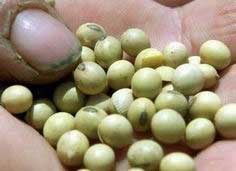China Completes Safety Certification for 176 Genetically Modified Crops
Fang Xiang Dong, Deputy Director of the Office of Genetically Modified Crop Safety Management under the Ministry of Agriculture of China, stated that since the issuance of the “Regulations on the Management of Agricultural Plant Safety for Genetically Modified Organisms“, China has granted safety certification for 176 genetically modified crops.
China’s medium and long-term scientific planning has included the development of genetically modified crops as a key research project, particularly in the field of agriculture.
The country believes this will play a significant role in modernizing agricultural techniques. Currently, research on genetically modified vaccines and the genetic modification of cotton and rice has placed China at the forefront among developed nations.
 |
|
Genetically Modified Soybean (Photo: VNN) |
As of now, China has evaluated over 100 plant genes as safe. The Ministry has received safety assessment applications from nearly 60 domestic and international research and development units.
Among these, 141 projects are in experimental production, which includes 41 types of plants such as rice, corn, millet, soybean, rapeseed, and cotton. Additionally, there are more than 10 genetically modified plants capable of resisting pests and diseases.
The Ministry of Agriculture of China has implemented a tiered safety assessment system for genetically modified crops.
According to relevant regulations, all research, experiments, production, and import activities involving genetically modified crops within the territory of China must undergo safety verification.
The evaluation will be conducted based on three categories: plants, animals, and microorganisms; four levels; and five stages: continuous experimentation, central experimentation, environmental release, experimental production, and safety certification applications.
Prioritizing the safety of genetically modified food is a concern for any nation. The Committee on Genetically Modified Crop Safety has established a food safety team to scientifically and rigorously assess nutritional components, toxicity, sensitivity, and long-term effectiveness.
China has built a comprehensive legal framework, monitoring system, and technical system for genetically modified crops, with government levels establishing departments responsible for plant safety. Furthermore, there are currently 28,000 trained safety management personnel for genetically modified plants across China, with 8,300 having obtained certification.
Currently, agriculture is one of the fields where biotechnology is most widely applied in China.
Tuyết Nhung

















































